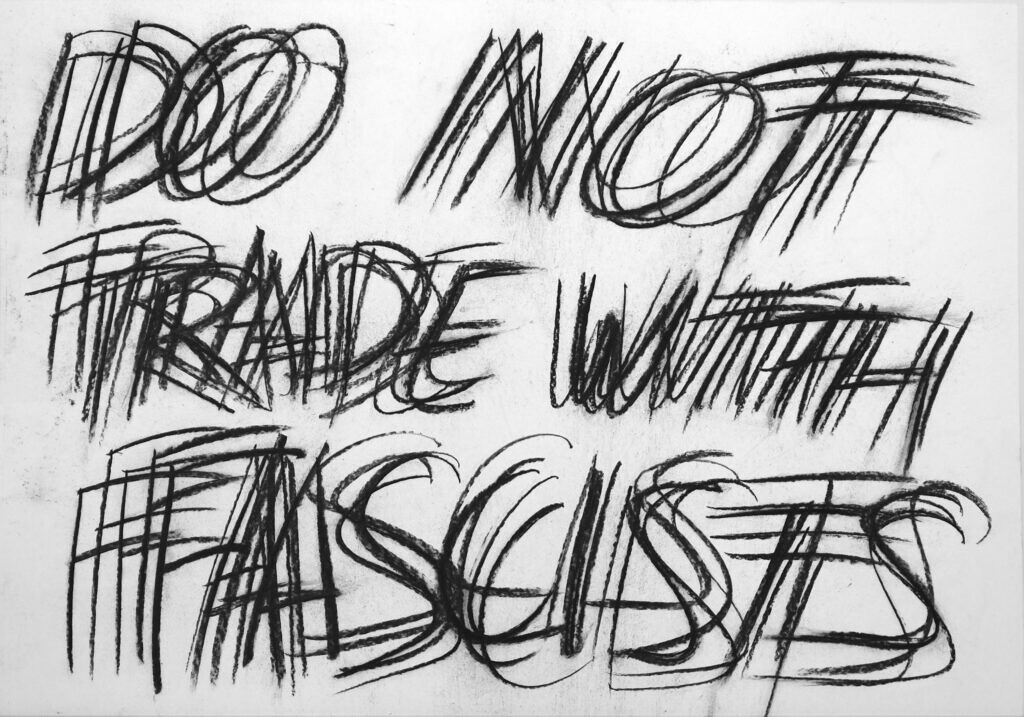Putinist Russia & the Our Fascist Moment - Notes - e-flux

🌈 Abstract
The article discusses the current "fascist moment" in global politics, analyzing how fascism has evolved and manifested in contemporary society. It examines how fascism is not a simple revival of historical fascism, but rather a complex combination of state apparatuses, political movements, and popular psychology rooted in the dynamics of market-based society. The article explores how fascism thrives by aestheticizing history, displacing events that had previously defined the 20th century, and rejecting the vocabulary of familiar moral and legal concepts. It also delves into the relationship between fascism and neoliberal expediency, as well as the role of empire and imperialism in the current geopolitical landscape.
🙋 Q&A
[01] The "Fascist Moment"
1. What is the author's definition of the current "fascist moment"?
- The author defines the current "fascist moment" as a complex combination of the rationale of state apparatuses, the dynamics of political movements, and popular psychology, representing the breakout of a tendency immanent to market-based society as a whole.
- It is not a simple revival of historical fascism, but rather a new manifestation that thrives by aestheticizing history and arbitrarily extracting narratives and images to suit the needs of the current political imaginary.
2. How does the author describe the relationship between fascism and neoliberal capitalism?
- The author argues that the current fascist moment has emerged from the neoliberal "perpetual present" and represents an acceleration of neoliberal capitalism, as well as a quasi-critique of it.
- Fascism combines the tension between inside and outside, and is both an expression of neoliberal capitalism's contradictions and its mainstream.
3. What is the role of empire and imperialism in the current fascist moment?
- The author discusses how the archaic idea of empire in the Russian conservative paradigm aligns with the phenomenon of modern imperialism, which is predetermined by the structure of capital accumulation.
- Imperialism has replaced the political idea of the state with the economic rationale of continuous expansion, leading to the instrumentalization of uncontrolled violence beyond state borders.
[02] Displacement of Historical Events
1. How has the current fascist moment put paid to the historical meaning of the 20th century?
- The author argues that the current fascist moment has displaced two events that had previously defined the historical meaning of the 20th century: the Russian Revolution of 1917 and the Second World War.
- The memory of the Second World War, which should never be repeated, has been turned into its opposite, with the invasion of Ukraine being portrayed as a replay of that war.
2. What is the significance of the displacement of these historical events?
- The displacement of these events has undermined the moral ideas and international institutions that had previously defined the contemporary world order and our sense of "normality".
- It has led to the rejection of the vocabulary of familiar moral and legal concepts, and the constant redefinition of these concepts from a position of power.
[03] The Relationship between Fascism and Abstraction
1. How does the author describe the relationship between fascism and abstraction?
- The author argues that fascism paradoxically is not at odds with its contempt for "abstract" human rights and international law.
- Fascist racism is directed against those who stand as embodied abstractions, who rebel against traditional forms, such as secularized Jews or the organized working class.
2. How does the author explain the fascist revival of caste hierarchy and traditional forms?
- The author suggests that the revival of caste hierarchy, in which everyone knows their place and heeds their natural destiny, remains a primary project of fascism, as it represents an image of the desired future.
- This is seen as a reaction to the "abstract man" created by the Enlightenment and the universalist principles of human rights and individual choice.
[04] The Relationship between Fascism and Neoliberalism
1. How does the author describe the paradoxical combination of voluntarism and fatalism in contemporary fascism?
- The author argues that the neoliberal subject acknowledges the impossibility of altering the circumstances that dictate its will, but simultaneously acts as a decider, constantly choosing the best behavior under conditions over which it has no power.
- This paradoxical combination of voluntarism and fatalism reveals the profound link between contemporary fascism and neoliberal expediency.
2. How does the author explain the emergence of market individualism as the logic of the state in the current fascist moment?
- The author suggests that the complete loss of the horizon of reasonability, the notion of a common interest and the progressive growth of a collective morality, extends fatalism to politics, leading to the emergence of market individualism as the logic of the state.